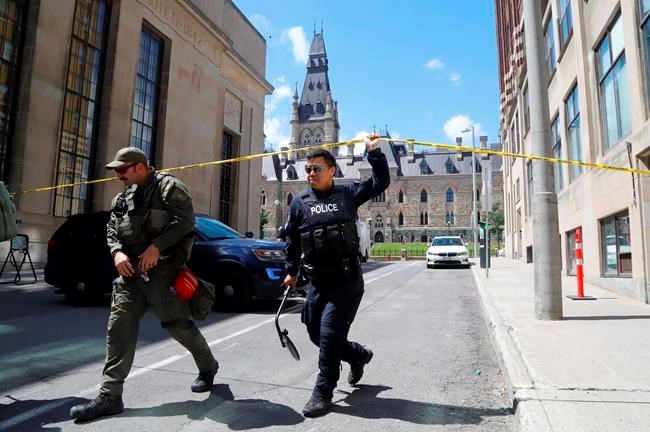Ottawa police have reached out to the leadership of the city’s Sikh community and will be meeting with them later this week to get their feedback on the police response to the false bomb tip that led to the arrest of two Sikh rally organizers near Parliament Hill on Saturday.
Interim police chief Steve Bell shared that information in a letter to the city's police services board Tuesday night.
The RCMP is conducting an ongoing investigation into the event, Bell said, noting that in light of that investigation, Ottawa police is limited in what it can share about Saturday's incident, but added it will work to give as much information as possible to "ensure transparency."
Bell said police are aware of the effect law enforcement's response had on the individuals who were arrested.
"We have reached out to the leadership of Ottawa’s Sikh community and we will be meeting with them later this week to take their feedback and discuss the Ottawa police response and operational processes under these circumstances," he said. "Our relationship with the Sikh community is important to us."
However, the two men who were arrested live in Quebec and say they have not heard anything from Ottawa police since their release from custody and they also have not been informed that officers are meeting with the Ottawa Sikh community.
Manveer Singh and Parminder Singh have spoken out about their arrests to defend their reputations and seek answers about who targeted them with the false tip and why. Parminder Singh said he’s appealing to Ottawa police, RCMP and CBSA to explain what happened.
"I really need to know who is behind this," said Parminder Singh, who lives in Pierrefonds, Que.
Harpreet Hansra, a fellow organizer of the rally, has called for police to deliver a public apology to the two men and supported the World Sikh Organization of Canada’s call for an investigation into the false tip.
The RCMP would not confirm Wednesday that such an investigation is underway. It said for privacy and operational reasons, it can only confirm details related to criminal investigations where charges have been laid.
When the RCMP probe finishes, Ottawa police will review the incident and community feedback to look at how it can improve its response to similar incidents, Bell said in the letter to the police services board.
Bell said the "detailed and specific threat" about the potential use of explosives in the Parliament Hill area "was complicated by time factors related to a planned event."
Police acted on the information received to ensure public safety, and acted "in good faith" and worked "as quickly and effectively as possible" to investigate the potential threat, said Bell.
The organizers of the rally, held in remembrance of the victims of the 1984 massacre of Sikhs in India, had a permit to hold the event on Parliament Hill. When they arrived, they were told the area was shut down due to an ongoing threat and they moved to the lawn of the Supreme Court of Canada.
Soon after the rally started, the men say police arrested them and told them their names were connected to a serious bomb threat on the Hill. Manveer Singh, who lives in Vaudreuil-Dorion, Que., said police claimed they had “credible information” linking him to the threat.
"What was that credible information that led police to arrest me?” he asked.
Police searched their cars for explosives before handcuffing them and taking them to the police station, where they were made to remove their turbans and questioned by officers, the men said. Manveer Singh also had to remove other religious symbols including a bracelet called a kara and a ceremonial dagger known as a kirpan.
The men said they were eventually released, with police apologizing and explaining that the pair were the victims of a "terrorism hoax."
Parliament was also evacuated while police investigated the tip on Saturday. After several hours, police said no threat to public safety was found and the area reopened.
This report by The Canadian Press was first published June 15, 2022.
---
This story was produced with the financial assistance of the Meta and Canadian Press News Fellowship.
Erika Ibrahim, The Canadian Press



